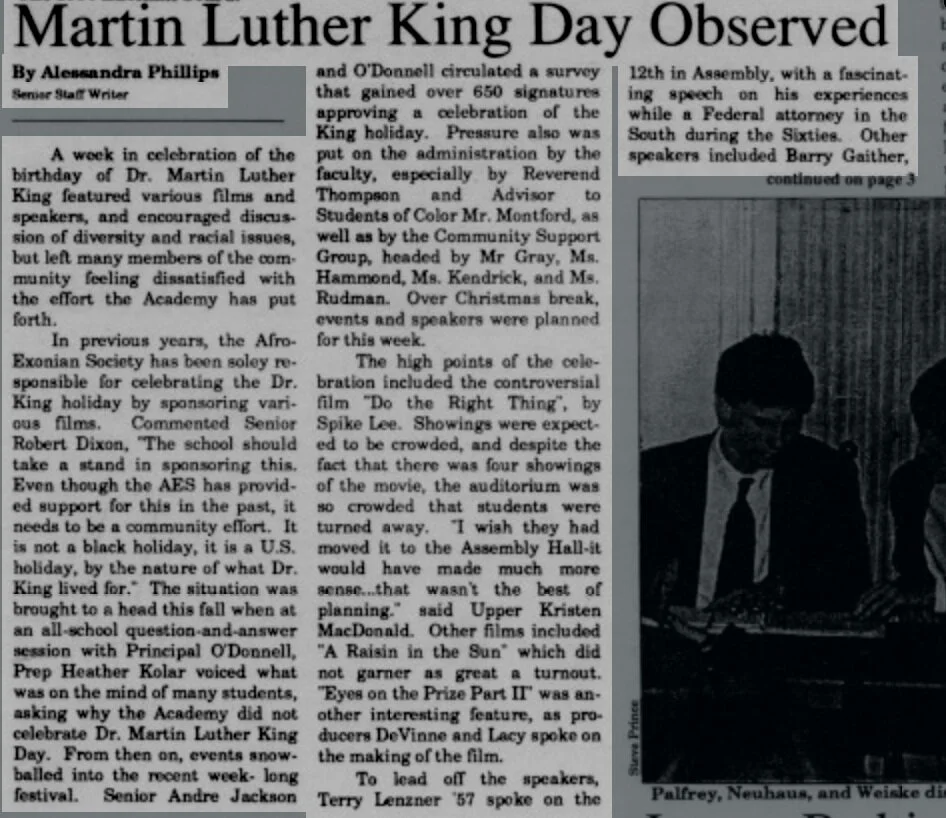
On April 6, 1878, The Exonian published its first issue, promising to “favor no class, no clique, no personal interests to the exclusion of matters touching the welfare of the students as a whole.”
The 142nd Board understands that the paper did not live up to its promise.
Decade by decade, the staff of The Exonian reexamined the paper’s archives. We charted the presence of minstrel shows, the Ku Klux Klan, racial discrimination at Exeter—and their evolution over time.
Our hope is that, by clarifying the Academy’s history, The Exonian can begin to set the record straight. This is our history:


This is where the link will jump to
Content Warning: Articles in this series depict specific instances of racial violence and aggression against Black and other non-white people. Racial epithets, though censored, are included.
This is the multi-part series Since 1878, a project undertaken by the 142nd Board of The Exonian. The principal objective of this series is to examine the paper’s coverage of racism at the Academy and, by extension, in the country as a whole. The series will not provide a complete overview of racist events over the years in question. Additionally, research draws heavily from The Exonian’s archives, which present a biased depiction of racial dynamics at the Academy. Instead, the articles will offer a portrait of The Exonian, the Academy and the nation, decade by decade, by highlighting pieces published in the paper.
In Since 1878, The Exonian will follow the National Association for Black Journalists’ recommendations, referring to the n-word as [n-word], censoring n-gro in most contexts and capitalizing Black, in line with our updated style guide.
Regarding privacy, there are individuals named in these articles who are still alive today. Their statements represent their views as minors in the middle of their education. Most high schoolers do not write for publications like The Exonian, which archives every issue. The editors of the paper understand this unique situation and that views often change over time, particularly those held during high school. Additionally, every article represents more than its writer. Pieces in The Exonian go through editors and advisers, reflecting an institutional history.
However, Since 1878 uses their names to ground itself in the tangible and proximate. In Since 1878, the editors choose full transparency over perpetuating ambiguity and obscuring our history of racism.
By The 143rd Board


























